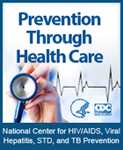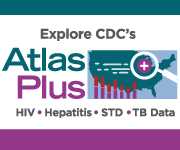CDC Statement on Syringe Services Programs
Statement
December 21, 2015
Statement from Dr. Jonathan Mermin
Director, CDC’s National Center for HIV/AIDS, Viral Hepatitis, STD, and TB Prevention
Congress has given states and local communities, under limited circumstances, the opportunity to use federal funds to support certain components of syringe services programs. These programs provide sterile injection equipment and may also link individuals to services including HIV and hepatitis C testing and care for those infected, substance abuse treatment, and overdose prevention.
Outbreaks in Indiana and elsewhere have been powerful reminders that people who inject drugs can be at very high risk for HIV and hepatitis C, and studies have shown that syringe services programs are cost saving, and can reduce the risk of infection without increasing drug use. CDC has historically recommended that states ensure people who inject drugs have access to integrated prevention services from a reliable source, including sterile injection equipment, opioid therapy, and HIV and hepatitis testing. Congress’s decision makes that job easier.
Overall, unsafe injection drug use accounts for approximately 8 percent of new HIV infections in the United States, and in recent years it has contributed to a 150 percent increase in acute cases of hepatitis C infections. Because these infections can spread from drug users to others, syringe services programs can help protect whole communities.
CDC is committed to helping communities use all effective tools to stop the spread of HIV and hepatitis. Along with other tools proven to reduce the risk of infection and strategies to prevent and treat substance abuse itself, syringe services programs can be a valuable component of a comprehensive prevention strategy for people who inject drugs and their partners.
- Page last reviewed: December 21, 2015
- Page last updated: December 21, 2015
- Content source:


 ShareCompartir
ShareCompartir

